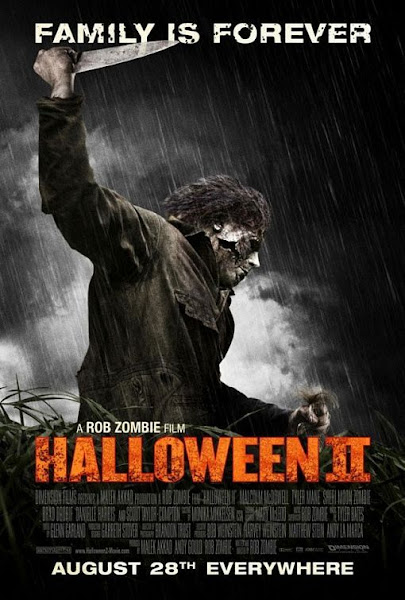P.O.D. -- Payable on Death

8/10
As much as P.O.D. were able to lift up the nation after 9/11, they suffered from the effects of it like anyone else...and inadvertently furthered the "everything sucks now" cultural meme. In 2002, at the peak of their fame, they lost founding member, key songwriter, and chief soul-bringer, guitarist, Marcos Curiel. The reason for his departure is contentious, and has never really been clear, even though it's now been almost a decade since Curiel has returned amicably to the band. Whatever the case, all the hope P.O.D. promoted in the past seemed to go out the window of despair for a moment, though that window was slightly shut when ex-Living Sacrifice guitarist, Jason Truby, was announced as the new guitarist.
Still, life seemed like this post 1/1/2000, and pre-9/11:
Humanity and America has reached a new level of peace and prosperity, and survived the scare of Y2K. Everything is going to be sunny now!
That optimistic millennial false-start crashed with the Twin Towers and was re-born as:
This new century is a time of war, terror, and economic uncertainty.
While that point-of-view appears near histrionic fifteen-plus years after 9/11, Trump or no Trump, things sure felt that way for a while. Eventually, it seemed like even the hyper-positive P.O.D. succumbed to these dark feelings, with the release of their quasi self-titled album, one of two featuring Jason Truby, Payable on Death.
As Payable on Death begins, Truby immediately reveals himself as a vastly different guitar player than Curiel. The soul-filled mysticism of Curiel is replaced by a more no-nonsense crunch...though there are times that Truby reveals something far deeper.. This depth starts to show its head when Truby is joined by the legendary guitarist, Phil Keaggy, who makes a guest appearance on track six, "Revolution." With "Revolution," Truby reveals a more relaxed, classical guitar bent. He shows this influence again at the end of track seven, "The Reasons," at the intro of track eleven, "Asthma," and throughout the incredible closing guitar instrumental, "Eternal," where he once again teams up with album star, Keaggy. While those are Truby's stand-out moments, he does acquit himself decently throughout the rest of Payable on Death. Right before he joined P.O.D., Truby had begun to focus on more classically focused acoustic guitar work. It's obvious here that that is where his passion truly lies...everything else is a little less ardent. But what is everybody else up to?
Vocalist, Sonny Sandoval, sounds weary. His lyrics are far more downbeat than on previous albums, as he sings about rocky relationships, and even rockier life landscapes that must be navigated. He sings a sort of tribute to American forces recently sent to fight abroad on "Freedom Fighters," which borders on the jingoistic--he walks the jingoism back on an album the band would release five years later. I say "sing" here because Sonny rarely raps on this album. In fact, the punk, and reggae influences the band showed on previous albums are nowhere to be found on Payable on Death, and the hip-hop influences are scarce. Truby's more concise, no-nonsense style leaves less room for the rhythm section anyway (though, as always, they still shine), and with less space, the songs here average much shorter run-times than in the past. It would be hard for Sonny to find room to rap, anyway.
So does all this disparity between the ironically named Payable on Death and the band's former work lead to total disaster?
Actually, Payable on Death is a good album. Despite its mostly straight-forward nature, the songwriting is solid. Going full-on modern rock actually gave the band a longer lifespan in the public eye, as rap-rock had fallen out of favor by late 2003, when Payable on Death was released. However, the album does lack what set the band apart before, and for that reason, despite the songs still being of a high quality, I'd put Payable on Death below the band's two previous major label albums (The Fundamental Elements of Southtown and Satellite). Getting some distance from Payable on Death's release date has also made it easier to enjoy. It was first available in stores the day before the third Matrix film hit theaters, which I saw with many of the people I've recently mentioned in these reviews: my cousins Jessica, Rhett, Adrian. That film was a huge disappointment at the time, and, as P.O.D. was associated with those movies, having lent a song to the second Matrix film's soundtrack earlier that year (their first recorded with Truby!), they just got compounded into the whole thing--the "everything sucks now" thing, for me at least (particularly in 2003!). In recent years, I've come to appreciate artistic creations that were released during this time period that I initially disliked...even the third Matrix film, to a degree. In a couple of days, I will publish an entry about a video-game system released during this time that I also short-changed. Plus, I would be remiss not to mention that I saw P.O.D. in support of this album the year after it was released, and I must admit, in the parlance of that time, that it was sick (Also, I was starting to wrap my head around this awesome fact in 2004: Everything actually does not suck!).

2003 Atlantic
1. Wildfire 3:15
2. Will You 3:47
3. Change the World 3:03
4. Execute the Sounds 3:01
5. Find My Way 3:09
6. Revolution (featuring Phil Keaggy) 3:25
7. The Reasons 3:44
8. Freedom Fighters 4:12
9. Waiting on Today 3:06
10. I and Identify 3:15
11. Asthma 4:01
12. Eternal (featuring Phil Keaggy) 6:19


Comments